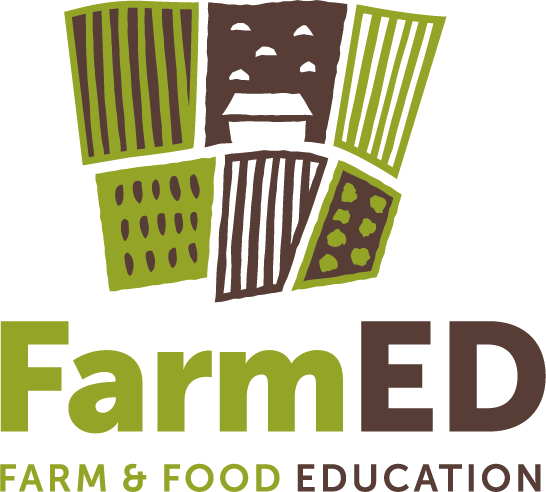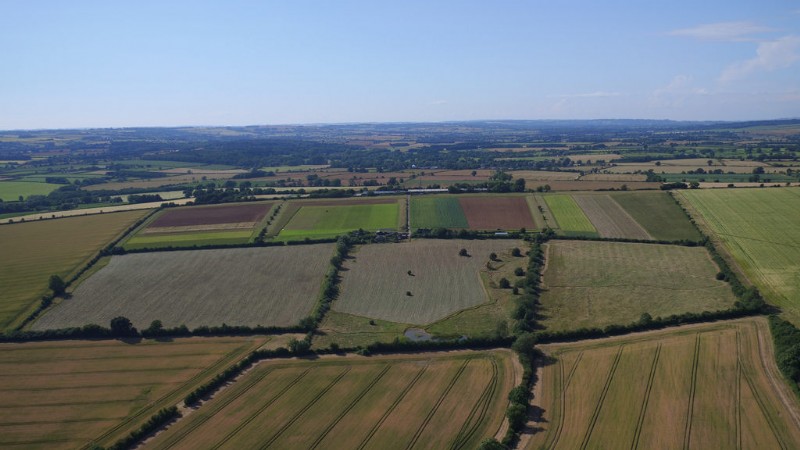The last few weeks have been very busy ones at Honeydale. Not only have we been haymaking and harvesting but we’ve also been progressing with plans for the development of Honeydale as a Centre for Food and Farming Diversity.
Sainfoin
We’re letting our field of sainfoin go to seed with a plan to harvest it for retail. The seeds are beginning to ripen, albeit unevenly, but we are hoping it will be ready to direct combine at the end of September. It’s a special landrace selection which offers fantastic diversity, selected over many generations. Unlike bred strains with are chosen for their stability, this variety of sainfoin has been given the epigenetic freedom to adapt to its local environment.
It will be very satisfying to see the seeds harvested at Honeydale for sale through Cotswold Seeds next year.

Buckwheat

We undersowed herbal ley to buckwheat to act as a nurse crop to protect the herbal ley from hot weather while it establishes, especially important on our thin, free draining soils. It was sown seven weeks ago at 10 kilos an acre of buckwheat and as you can see from the below the herbal ley has taken wonderfully well. We’re not going to graze the sheep on it, because we’re not certain how they will take to the buckwheat, so we ran the topper over it this week to allow the light to get to the herbal ley for regrowth. We’ve also left a trial strip of buckwheat so that we can observe what happens if we don’t top it.
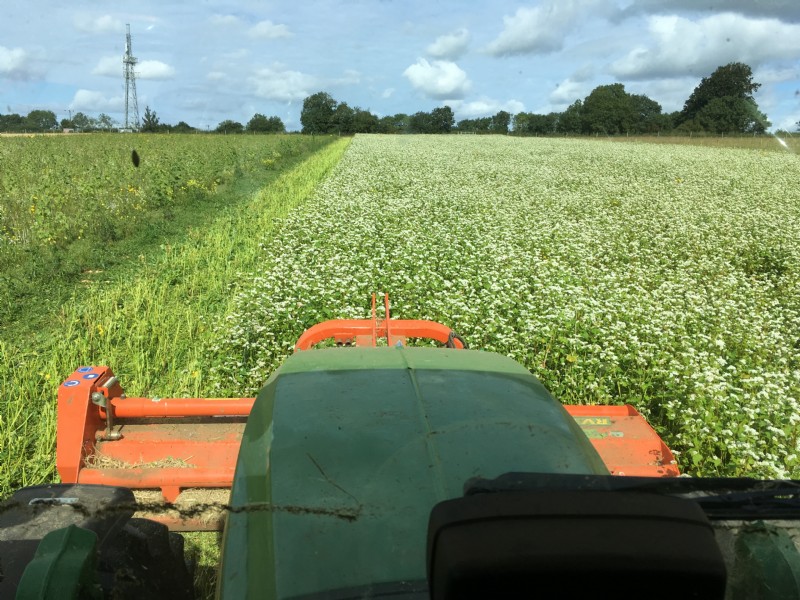
Combining the Wheat
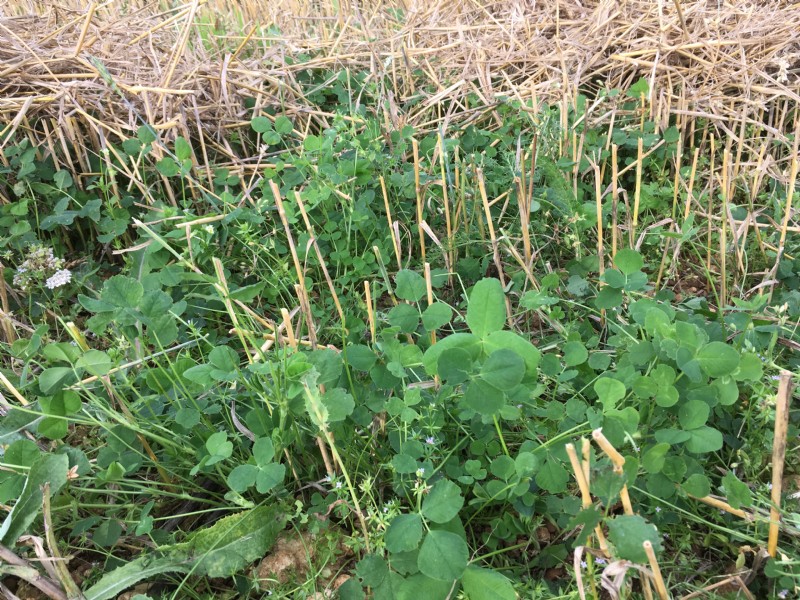
Like many farmers, there was no rest for Sam over the hot and sunny bank holiday weekend. He was busy combining the wheat. As part of our rotation it was late sown in May, undersown with trefoil and white clover for the sheep to graze in spring.
We achieved a yield of 1.4 tons an acre, which we’re very happy with, given that it was a zero input/no cost crop. The financial data is being professionally monitored by Farm Business Analyst James Turner from Strutt & Parker which will enable us to compare the new rotation with the control plots from the previous conventional, high cost/input system.
We were hoping to combine the oats too, but they weren’t quite ready.
Haymaking
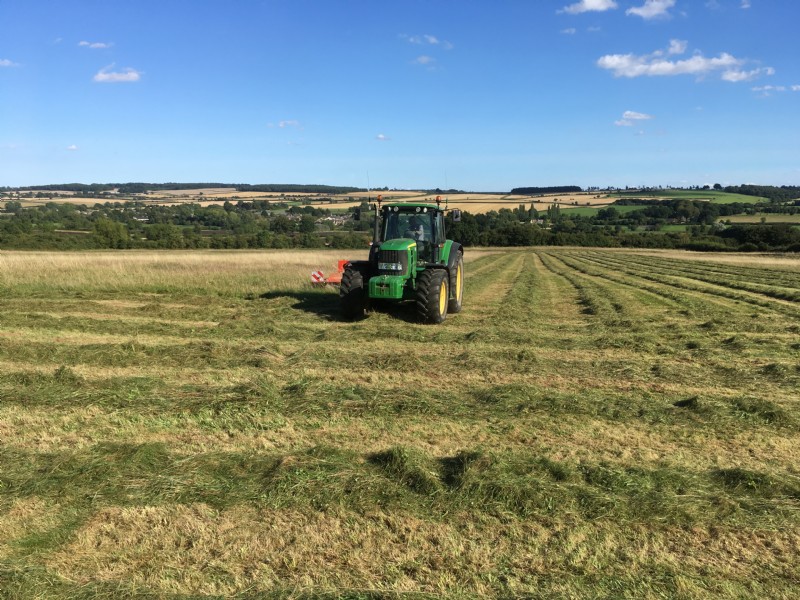
Two permanent grass fields, fifteen acres each of ridge and furrow, have been cut for hay. It’s been baled and Sam has been tedding it for the past 4-5 days. Weather permitting, it might only need a couple more turns and then it will be ready to bale and feed to sheep and cattle over the winter.
Wildbird and sunflower seed mix
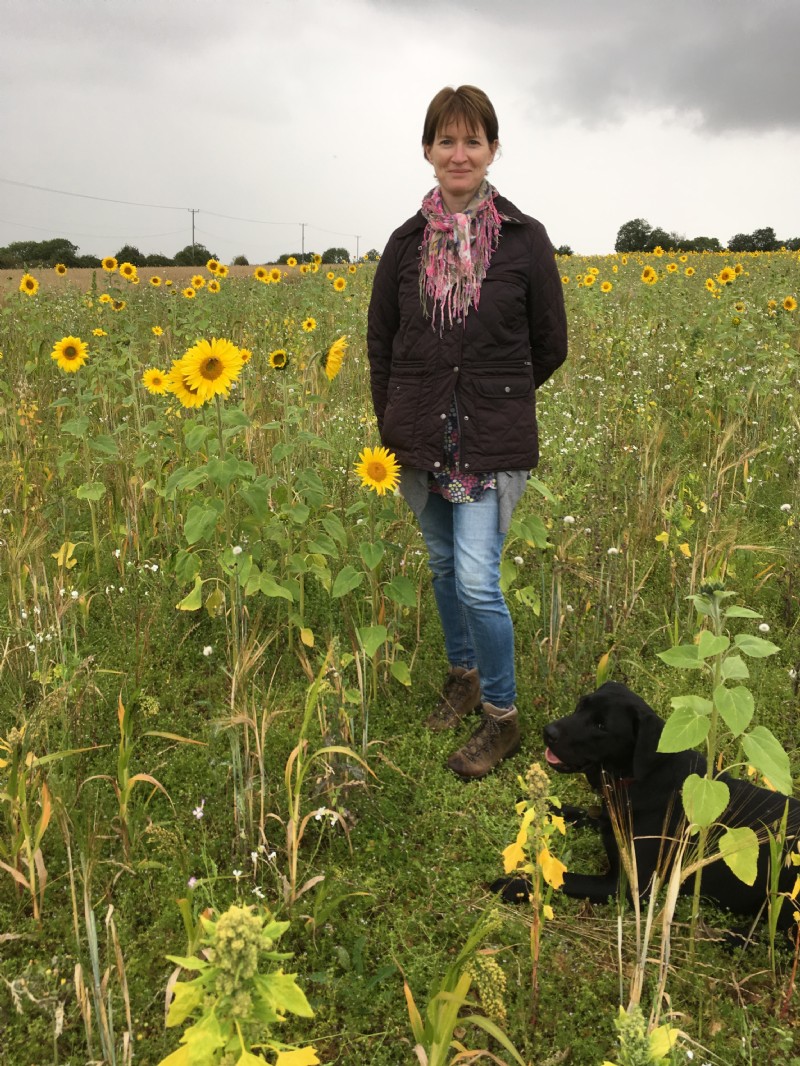
This was thin when it was sown in April because of the dry weather, but it’s looking a bit better now, and getting plenty of interest from our farmland birds already.
Dry-stonewalling

H and Kelvin from local dry stone walling and fencing company ‘Sticks & Stones’ have been carrying on with the building of the wall at the entrance of Honeydale and it’s progressing slowly but steadily. It’s highly skilled and painstaking work and we could of course have just erected a fence here. But limestone walls are so quintessentially Cotswold and there was a wall at the entrance of Honeydale which had fallen down, so we wanted to rebuild it reusing the old stone.
Development of Honeydale
We’ve been working closely with architects and West Oxfordshire District Council to progress the plans for the development of Honeydale. We’re currently at pre-application stage and Tim and Chris, our architects, are now drawing up visualisations, taking great care that replacement farm buildings will be perfectly in-keeping with the landscape of the Cotswold Area of Outstanding Natural Beauty.

